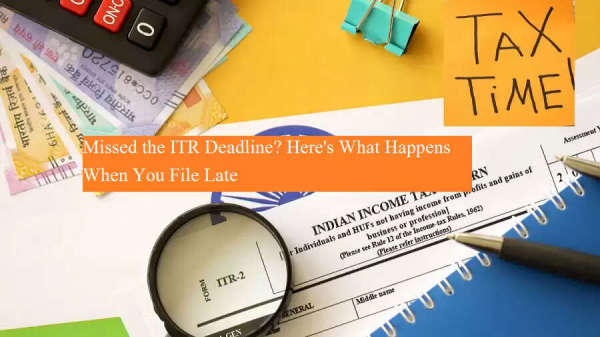
If you’ve missed the deadline to file your Income Tax Return (ITR), don’t panic—there are still options available, but they come with certain consequences. From late fees and interest loss on refunds to penalties and legal action, here’s everything you need to know about filing a delayed ITR for the financial year 2024–25.
For most salaried individuals and small business owners, the standard deadline to file an ITR is July 31. However, for FY 2024–25, the government has extended this deadline to September 15, 2025.
Here are the important dates:
September 15, 2025: For salaried taxpayers and non-audit cases
October 31, 2025: For businesses requiring an audit
November 30, 2025: For taxpayers involved in transfer pricing cases
Even if you miss the extended deadline, the Income Tax Department allows you to file a belated return by December 31, 2025. However, this comes with certain disadvantages:
Late filing fee of up to ₹5,000
No interest on any eligible tax refund
Cannot carry forward losses (such as business or capital losses) to the next year
Interest on tax dues, if applicable
✅ Tip: If your total income is below ₹5 lakh, the late filing fee is reduced to ₹1,000.
Filing after the due date may have several financial and legal consequences, such as:
Loss of Carry-Forward Benefits: You won’t be able to carry forward certain losses like business loss or capital loss for future tax adjustments.
No Interest on Refund: If you are due for a refund, you won’t receive interest on it for the delay period.
Late Filing Fee:
₹5,000 if income exceeds ₹5 lakh
₹1,000 if income is ₹5 lakh or less
Interest Penalty on Tax Due: You may have to pay interest under Section 234A for the delay.
If you’ve already filed your return but realize there was a mistake, you can revise your ITR. The deadline to file a Revised Return is also December 31, 2025. It allows you to correct errors in the original return without penalty, provided it is done in time.
Failing to file even the belated return by December 31, 2025, can lead to strict penalties and possible legal action:
A penalty of up to 50% of tax saved if the ITR is not filed deliberately
If false information is found, the penalty could go up to 200%
If the tax evasion exceeds ₹10,000, the taxpayer may face criminal charges
Possible jail term ranging from 3 months to 7 years, depending on the case
Even after missing the December deadline, you still have one last option: Updated ITR.
You can file this return within 48 months from the end of the relevant assessment year.
However, it comes with additional tax liabilities and penalties.
It is usually filed under Section 139(8A) of the Income Tax Act.
⚠️ Note: Updated ITR is not applicable for declaring losses or claiming additional refunds.
Filing your ITR on time not only ensures compliance but also saves you from a host of financial and legal complications. Whether you’re salaried, self-employed, or a small business owner, mark the deadlines on your calendar and file early to avoid unnecessary penalties and stress.
If you've missed the due date, act promptly—file the belated return before December 31, or explore the updated ITR option with the help of a tax professional.
Missed ITR deadline 2025
Late ITR filing penalties India
Income tax return last date FY 2024-25
Belated ITR filing consequences
Updated ITR India 2025
Revised ITR deadline 2025